In majapahit4d ‘s rapidly evolving world, the intersection of finance, technology, intelligence, and health has become increasingly significant. These four sectors are not only transforming each other but also creating new opportunities for innovation, efficiency, and better quality of life.
Let’s take a closer look at how each of these fields is evolving and how they intertwine to shape the future.
Finance: The Changing Face of Finance
The financial industry has undergone a massive transformation over the past few decades, largely due to the rise of technology. From mobile payments to blockchain and cryptocurrencies, these innovations have created new ways for individuals and businesses to manage money. The traditional financial system is evolving at an unprecedented pace, and the future promises even more disruption.
Blockchain technology, for instance, is not only enabling digital currencies like Bitcoin and Ethereum, but it’s also providing solutions for various sectors, such as supply chain management, contract enforcement, and even voting systems. By offering decentralized and secure transactions, blockchain is paving the way for a more transparent and efficient financial system.
FinTech companies are leveraging artificial intelligence (AI) and machine learning (ML) to create smarter financial tools. These technologies allow banks and financial institutions to offer personalized financial services, improve risk management, and even predict market trends with greater accuracy. AI is also driving automation in financial services, reducing human errors and improving efficiency.
Furthermore, digital payment systems are becoming increasingly popular as smartphones and online banking continue to integrate seamlessly into our daily lives. Whether it’s through peer-to-peer payment apps or online banking services, consumers are now able to conduct financial transactions faster and more securely than ever before.
Technology: The Role of Innovation in Shaping Our World
Technology is arguably the most powerful force driving change in today’s world. The digital revolution has brought forth tools and platforms that enhance productivity, connect people, and enable new forms of communication. From artificial intelligence to robotics and the Internet of Things (IoT), technology is revolutionizing almost every industry.
One of the most transformative advancements is the rise of AI. AI is not just automating tasks; it’s also enhancing human capabilities, allowing machines to solve complex problems and perform tasks that once required human intelligence. In industries like healthcare, for example, AI is used to predict disease outbreaks, develop personalized treatment plans, and analyze medical data faster and more accurately than traditional methods.
Additionally, 5G technology is changing the way we connect and communicate. With faster internet speeds, 5G enables seamless connections, powering the IoT and allowing devices to communicate in real time. The proliferation of smart devices, from wearables to connected home appliances, is enhancing convenience and efficiency in our lives.
Technological advancements are also making their way into financial services, with cloud computing, data analytics, and cybersecurity playing crucial roles in the digital economy. Cloud computing enables businesses to scale their operations without the need for expensive infrastructure, while data analytics helps companies make data-driven decisions, improving their services and customer experiences.
Intelligence: The Rise of Artificial Intelligence and Its Impacts
Artificial intelligence (AI) is perhaps the most discussed technological advancement in recent years. With its ability to learn from data and make decisions based on that learning, AI is transforming industries across the board. In the financial sector, AI is being used to automate trading, enhance fraud detection, and personalize financial services. In healthcare, AI-powered diagnostic tools are helping doctors detect diseases early, and in transportation, self-driving cars promise to change the way we travel.
But AI is also raising ethical questions. As AI systems become more autonomous, the line between human and machine decision-making becomes blurred. Issues like privacy, job displacement, and accountability are becoming more pressing as AI continues to evolve. While AI promises many benefits, society must ensure that its development is aligned with human values and ethical standards.
Moreover, AI isn’t limited to just automation. It is also expanding the potential for human collaboration, making it possible for people to work alongside intelligent systems to solve problems faster and more efficiently. In education, AI tools can provide personalized learning experiences for students, adjusting to their pace and helping them master concepts more effectively.
Health: The Intersection of Health, Technology, and Innovation
In recent years, the healthcare industry has seen a surge in innovations aimed at improving patient care and health outcomes. From telemedicine to wearable health devices, technology is playing a central role in transforming how we approach health and wellness.
Telemedicine, for example, has made healthcare more accessible, allowing patients to consult with doctors remotely. This is particularly valuable for people living in rural or underserved areas, where access to healthcare professionals may be limited. During the COVID-19 pandemic, telemedicine played a critical role in ensuring that patients continued to receive care while minimizing the risk of exposure to the virus.
Wearable devices like fitness trackers and smartwatches are providing real-time data on everything from heart rate to sleep patterns. These devices not only help individuals monitor their health but also enable doctors to remotely track patient progress and make adjustments to treatment plans. In the future, wearable technology could become even more advanced, potentially allowing for continuous monitoring of chronic conditions like diabetes or heart disease.
The integration of AI in healthcare is also accelerating the development of personalized medicine. AI can analyze genetic data, medical histories, and lifestyle factors to create customized treatment plans for individual patients. This approach has the potential to improve patient outcomes, reduce adverse reactions, and make healthcare more efficient.
In addition, biotechnology is making great strides in areas like gene therapy and regenerative medicine, offering the potential to cure previously untreatable diseases and injuries. Stem cell research and CRISPR technology are opening new possibilities for healing and restoring damaged tissues, offering hope to millions of people suffering from chronic conditions.
Conclusion: A Glimpse into the Future
The future of finance, technology, intelligence, and health is incredibly exciting. As these fields continue to advance, they will undoubtedly create new opportunities, improve quality of life, and solve some of the world’s most pressing challenges.
While challenges remain, particularly regarding ethical concerns and the need for regulation, the potential benefits are immense. By continuing to innovate and collaborate across industries, we can create a future where technology serves humanity, enabling us to live healthier, more connected, and more prosperous lives.
The next decade promises to be a thrilling journey into a world where finance, technology, intelligence, and health work hand in hand to transform our societies in profound ways.
Exploring the Intersection of Finance, Technology, Intelligence, and Health
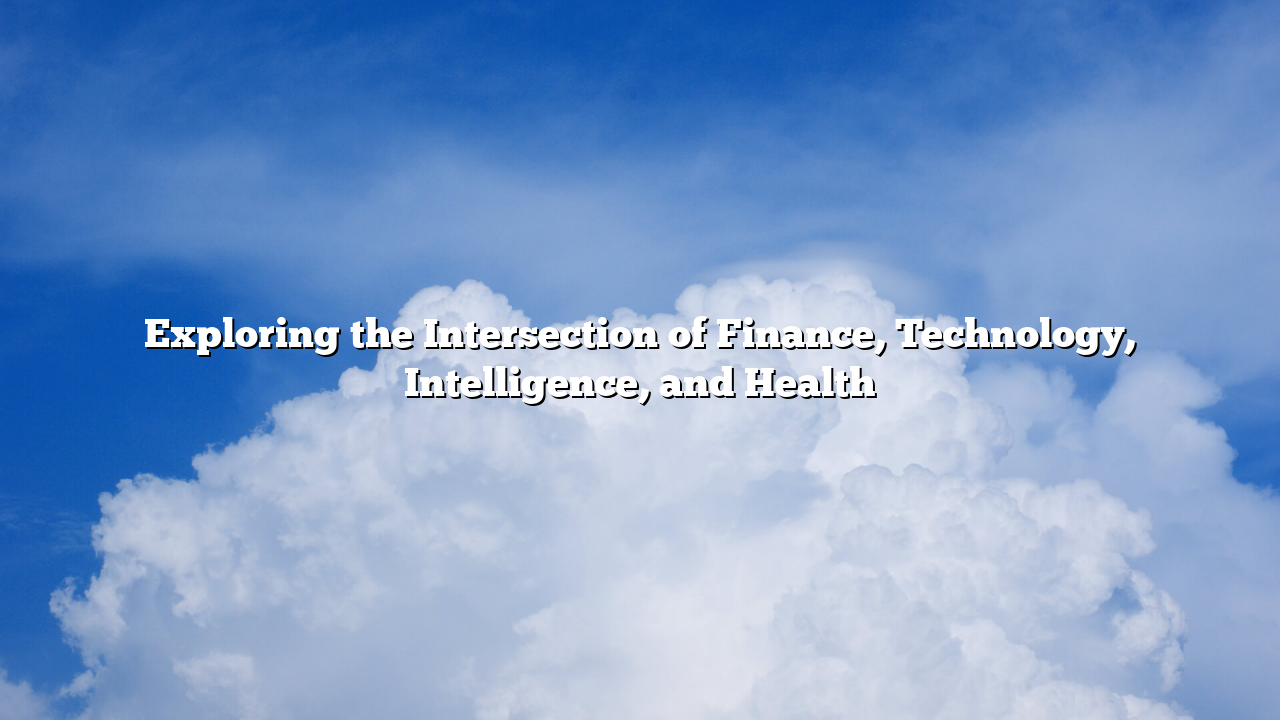

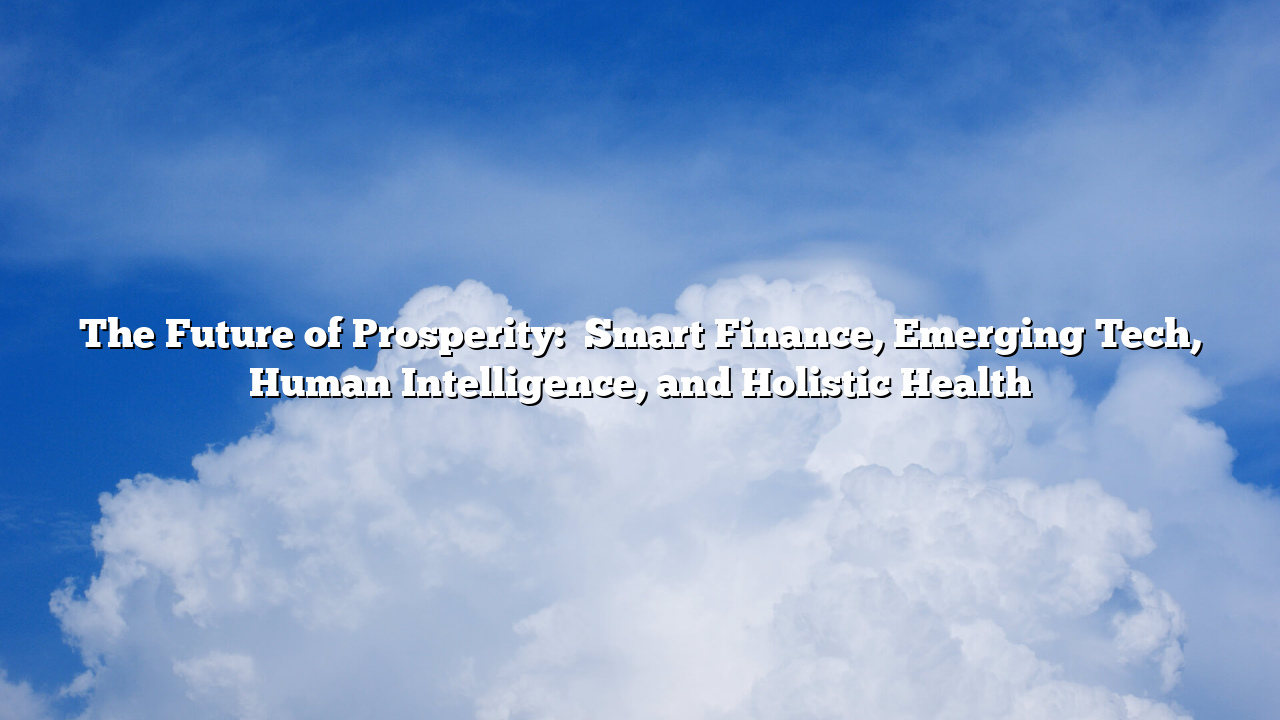
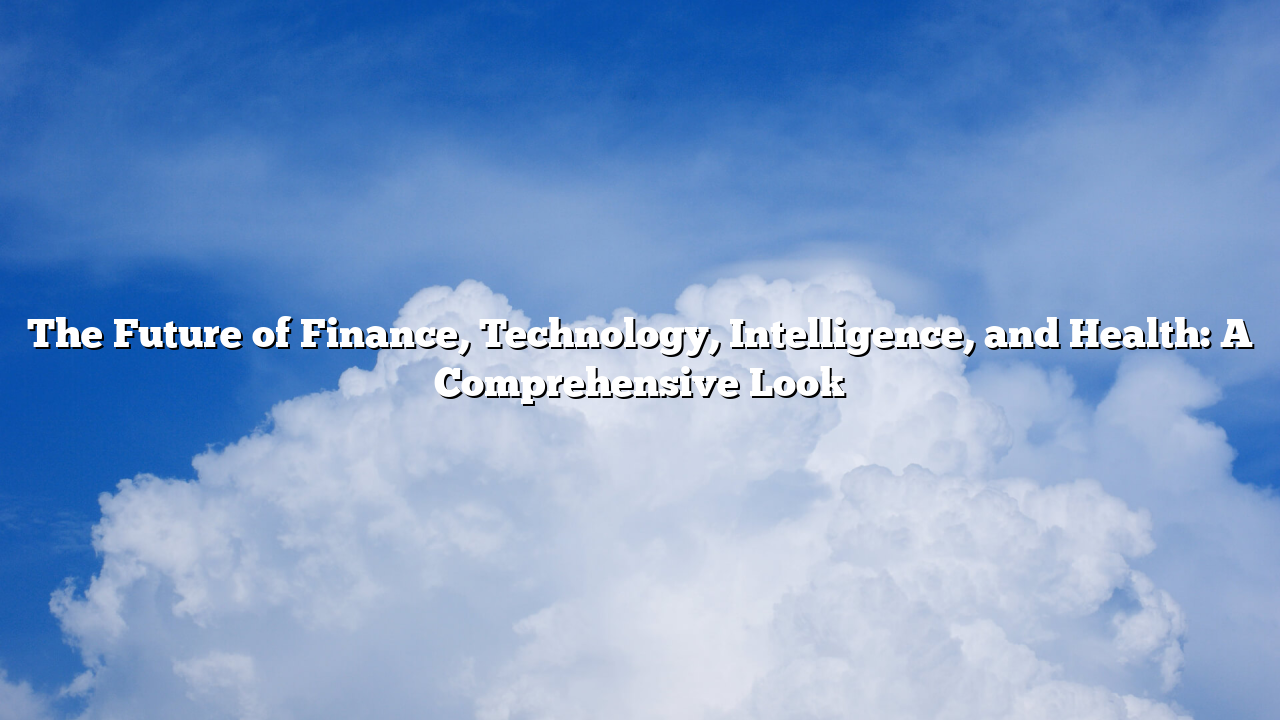
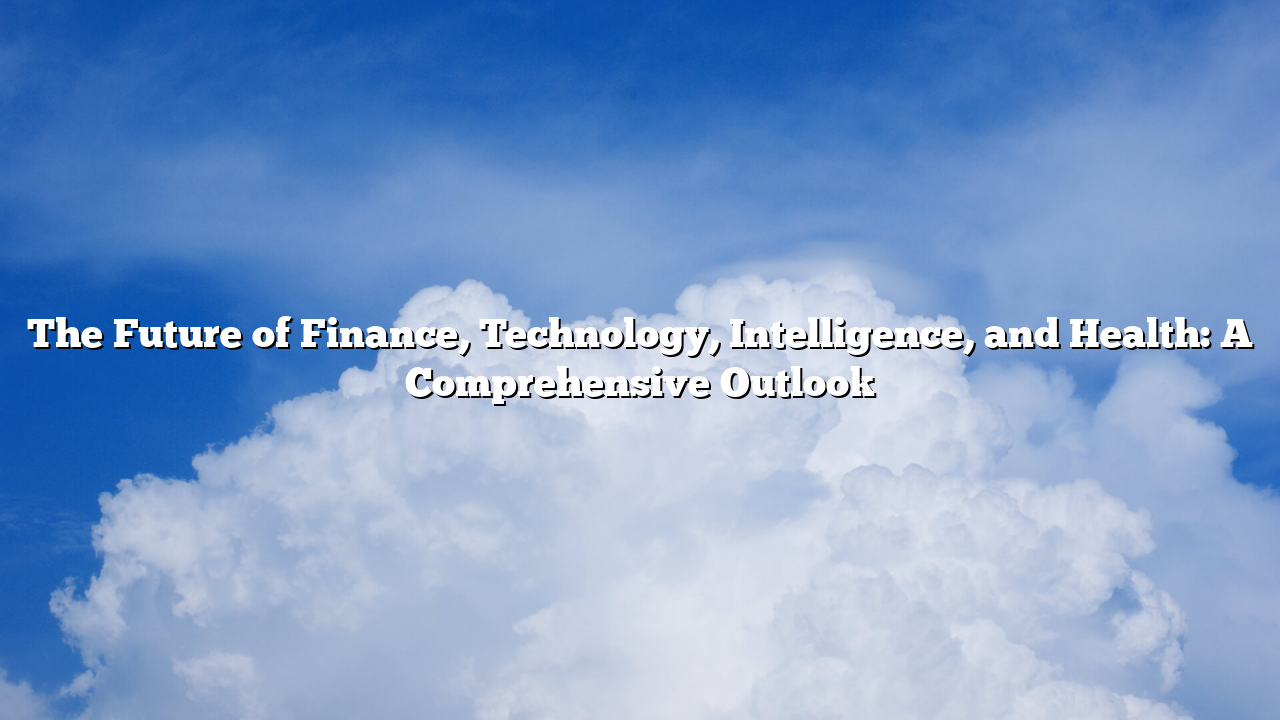
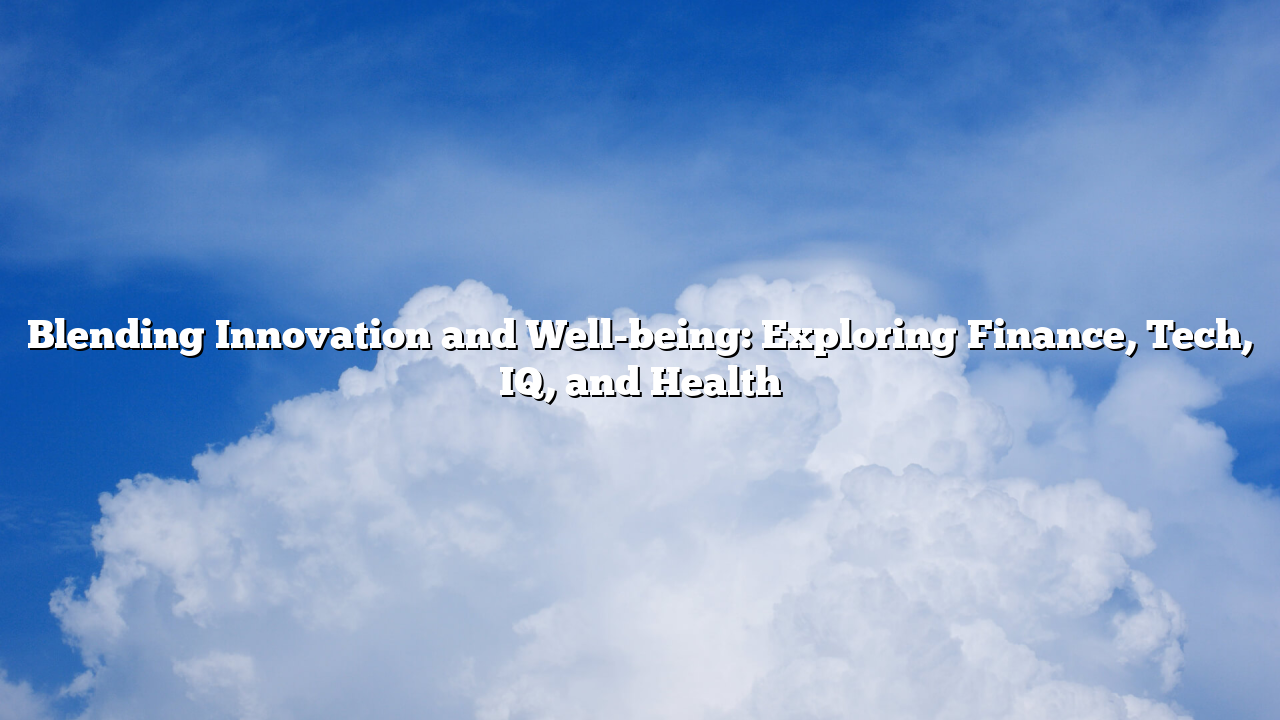
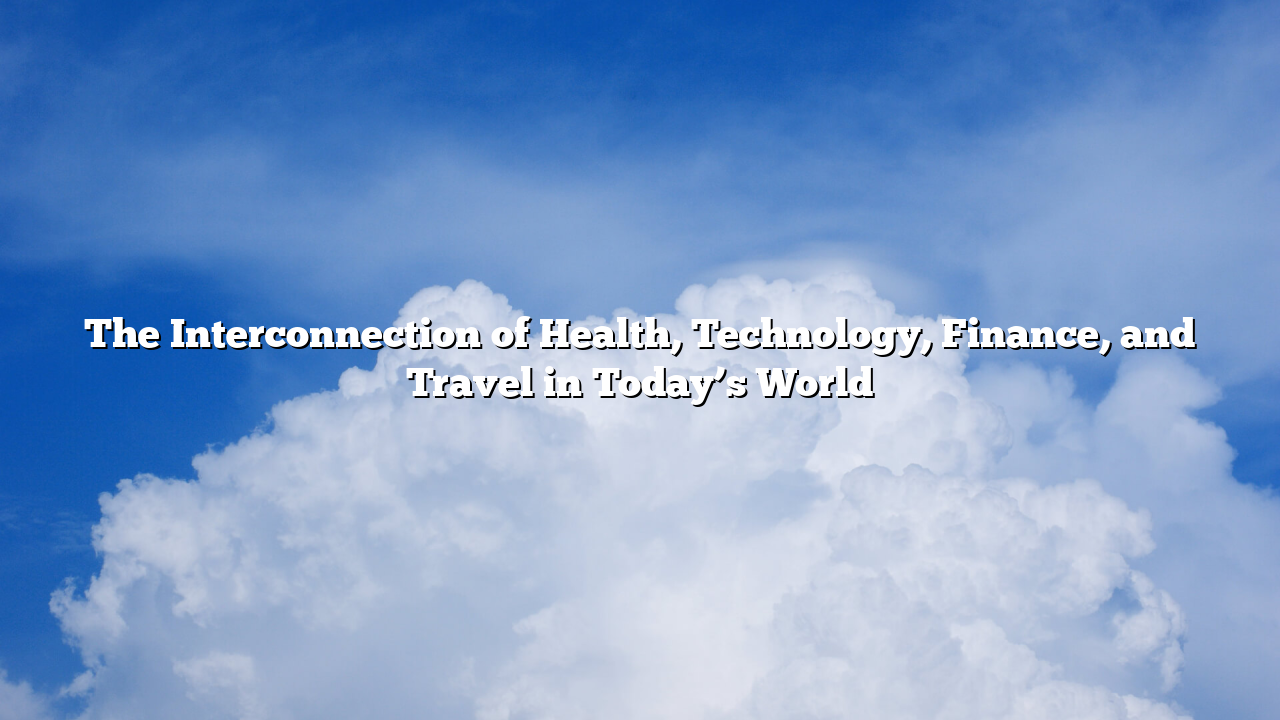
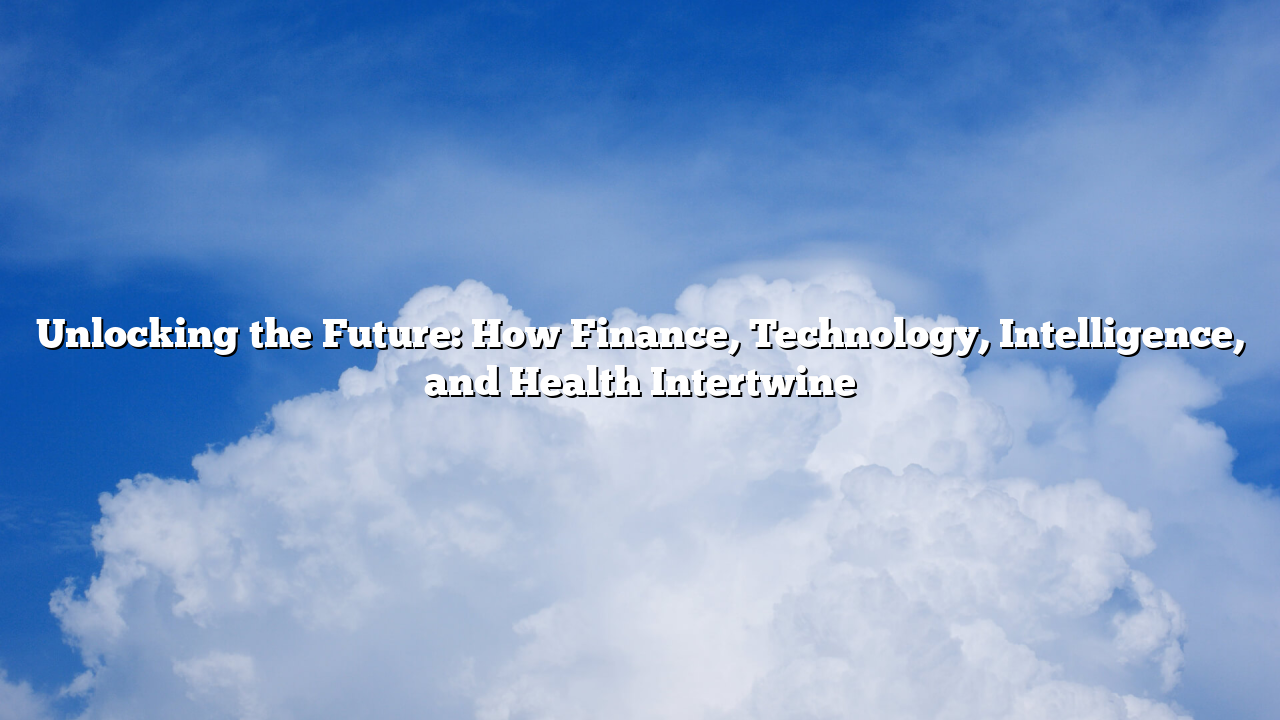
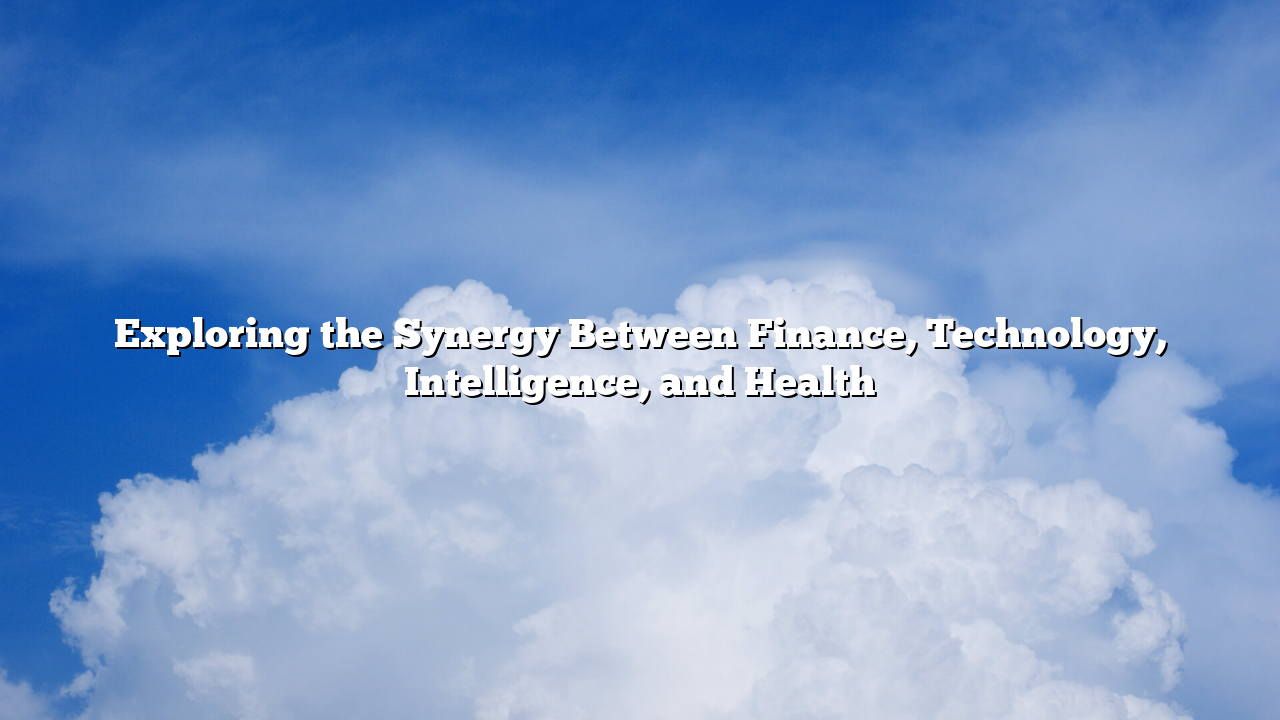

Leave a Reply